Life
Sign up for our newsletter
We summarize the week's scientific breakthroughs every Thursday.
-
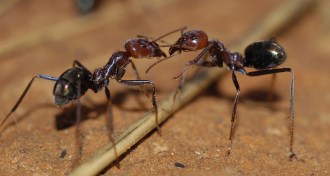 Animals
AnimalsAnt antennae provide chemical ID
Ants use their antennae to identify nest-mates and potential invaders. But antennae also produce the key compounds that ants use to tell friend from foe.
-
 Animals
AnimalsAnts’ antennae both send and receive chemical signals
Ants use their antennae to identify nest-mates and potential invaders. But antennae also produce the key compounds that ants use to tell friend from foe.
-
 Paleontology
PaleontologyDisney’s ‘The Jungle Book’ resurrects giant extinct ape
Disney’s latest version of ‘The Jungle Book’ features Gigantopithecus, the largest known ape ever to have lived.
By Erin Wayman -
 Life
LifeNew habitat monitoring tools find hope for tigers
Free tools such Google Earth Engine and Global Forest Watch show there’s still enough forest left for tigers — if it’s protected.
By Susan Milius -
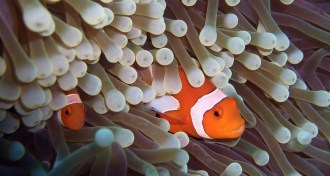 Animals
AnimalsIn the Coral Triangle, clownfish figured out how to share
In the Coral Triangle in Southeast Asia, an area of rich biodiversity, clownfish species often share anemones, a new study finds.
-
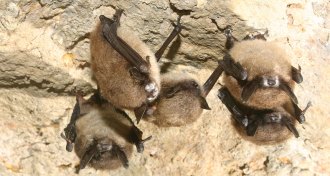 Animals
AnimalsLethal bat disease moves west
For the first time, the bat-killing white-nose syndrome shows up west of the Rockies.
By Susan Milius -
 Animals
AnimalsWhite-nose bat disease jumps the Rockies to Washington state
For the first time, the bat-killing white-nose syndrome shows up west of the Rockies.
By Susan Milius -
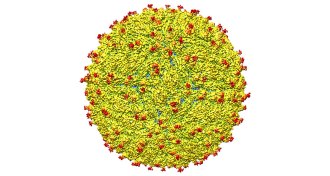 Life
LifeZika structure mapped for first time
The newly solved structure of Zika offers scientists clues on how to combat the virus.
By Meghan Rosen -
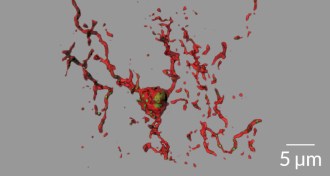 Neuroscience
NeuroscienceNerve cell links severed in early stages of Alzheimer’s
Nerve cell connections may be trimmed too much in early stages of Alzheimer’s.
-
 Animals
AnimalsAncient snake wore green
Scientists have reconstructed the skin coloration of a fossilized snake that’s about 10 million years old.
-
 Animals
AnimalsGreen was this ancient snake’s signature color
Scientists have reconstructed the skin coloration of a fossilized snake that’s about 10 million years old.
-
 Archaeology
ArchaeologyAncient Assyrians buried their dead with turtles
Why did ancient Assyrians bury their dead with turtles? The reptiles may have served as symbolic protectors of the dead.